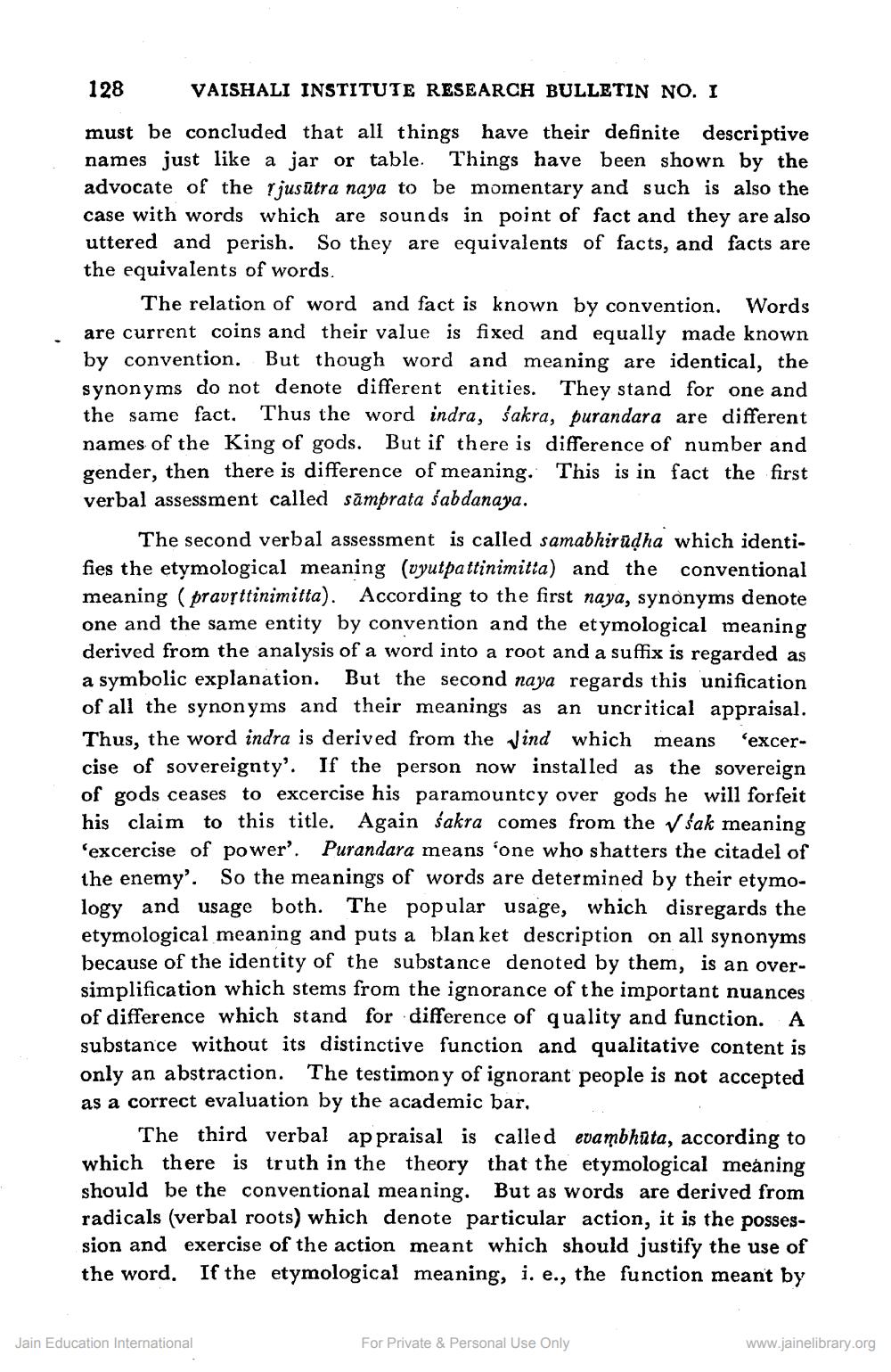________________
128
VAISHALI INSTITUTE RESEARCH BULLETIN NO. I
must be concluded that all things have their definite descriptive names just like a jar or table. Things have been shown by the advocate of the I jusūtra naya to be momentary and such is also the case with words which are sounds in point of fact and they are also uttered and perish. So they are equivalents of facts, and facts are the equivalents of words.
The relation of word and fact is known by convention. Words are current coins and their value is fixed and equally made known by convention. But though word and meaning are identical, the synonyms do not denote different entities. They stand for one and the same fact. Thus the word indra, sakra, purandara are different names of the King of gods. But if there is difference of number and gender, then there is difference of meaning. This is in fact the first verbal assessment called samprata sabdanaya.
The second verbal assessment is called samabhirudha which identifies the etymological meaning (vyutpattinimitta) and the conventional meaning (pravrttinimitta). According to the first naya, synonyms denote one and the same entity by convention and the etymological meaning derived from the analysis of a word into a root and a suffix is regarded as a symbolic explanation. But the second naya regards this unification of all the synonyms and their meanings as an uncritical appraisal. Thus, the word indra is derived from the vind which means 'excercise of sovereignty'. If the person now installed as the sovereign of gods ceases to excercise his paramountcy over gods he will forfeit his claim to this title. Again sakra comes from the ✓ sak meaning 'excercise of power'. Purandara means 'one who shatters the citadel of the enemy'. So the meanings of words are determined by their etymology and usage both. The popular usage, which disregards the etymological meaning and puts a blanket description on all synonyms because of the identity of the substance denoted by them, is an oversimplification which stems from the ignorance of the important nuances of difference which stand for difference of quality and function. A substance without its distinctive function and qualitative content is only an abstraction. The testimony of ignorant people is not accepted as a correct evaluation by the academic bar,
The third verbal appraisal is called evambhūta, according to which there is truth in the theory that the etymological meaning should be the conventional meaning. But as words are derived from radicals (verbal roots) which denote particular action, it is the possession and exercise of the action meant which should justify the use of the word. If the etymological meaning, i. e., the function meant by
Jain Education International
For Private & Personal Use Only
www.jainelibrary.org




